8 Easy Tricks to Stop Rodents From Eating Your Plants
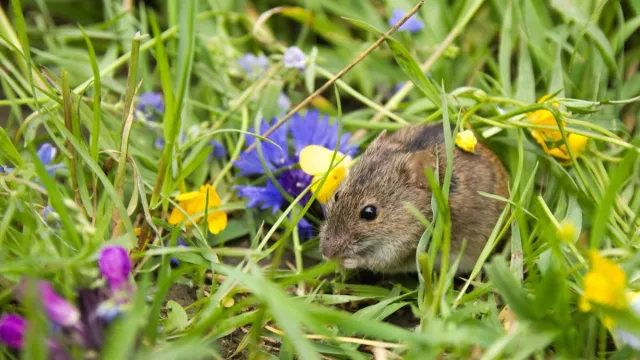
If your garden is finally in full bloom for spring, the next step is to protect all of the hard work you put into it. Unfortunately, rodents are more than happy to nibble on the fruits of your labor, leaving your plants looking less dazzling than they deserve. But don’t throw in the towel just yet—there are several ways to stop pests from eating your plants, and many of them are simple. According to pest and garden experts, these are the eight best tricks to stop rodents from eating your plants.
RELATED: 6 Plants Attracting Mice to Your Home.
1
Eliminate food sources.
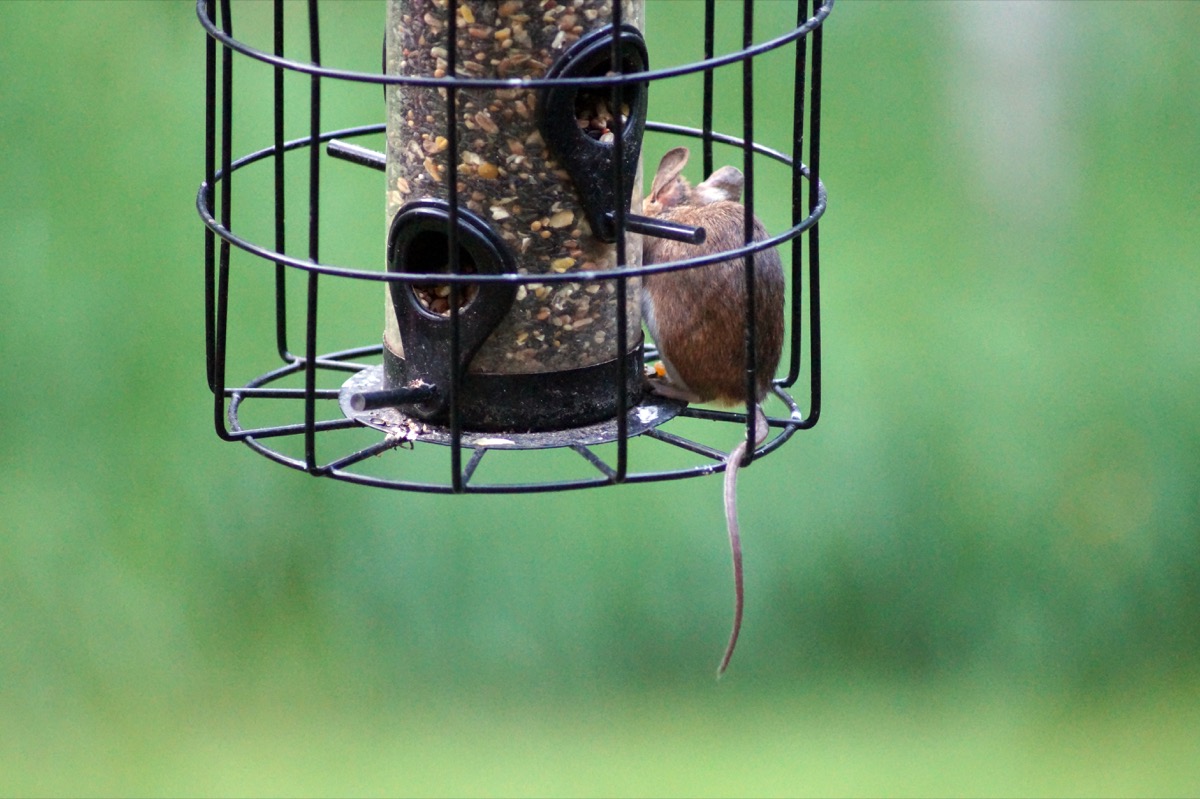
When rodents and other pests are well-fed, getting rid of them is nearly impossible. To that end, the first thing you’ll need to do to manage a pest population is to cut off their food supply.
“Keeping your yard free of accessible food sources like pet food, bird seed, and fallen fruits is crucial,” says Gene Caballero, co-founder of GreenPal and a seasoned professional in the landscaping industry. “Rodents are drawn to easy meals, so maintaining a clean outdoor space minimizes their attraction.”
2
Plant strategically.

Meg Pearson, training manager at Critter Control, says that another common tactic is to plant other vegetation nearby that rodents find unfavorable. This includes “forsythias, lilac bushes, marigolds, zinnias, daffodils, lavender, and snapdragons, which can deter them from going near your plants.”
Pearson notes that while this can offer a temporary solution, it’s unlikely to last long-term. “Because rodents are typically in a constant state of foraging, these kinds of preventative measures will likely only deter them for a short while; eventually they will likely discern that there is no threat and will continue eating your plants, as they did before,” she tells Best Life.
RELATED: 6 Plants in Your Yard That Are Inviting Pests to Your Home.
3
Seal entry points.
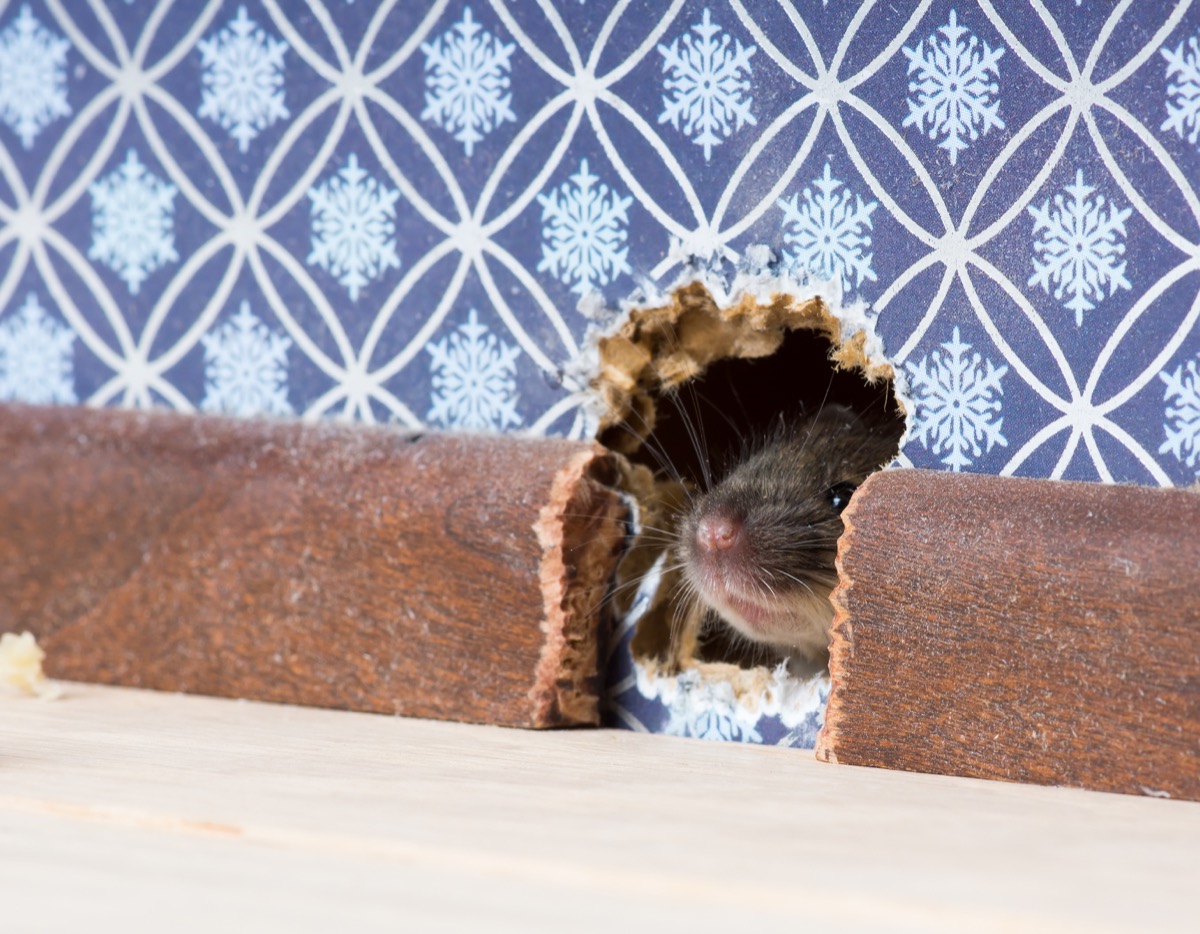
It’s not just your garden you have to consider—rodents can also deal damage to indoor plants. That’s why Caballero recommends regularly inspecting and sealing any openings around your home’s exterior, which could be granting them entry.
“Use materials like steel wool and caulk for smaller gaps and metal grates for larger spaces. This is critical because rodents can enter through tiny openings, and sealing these prevents them from accessing your home,” he says.
4
Put a fence around your plants.
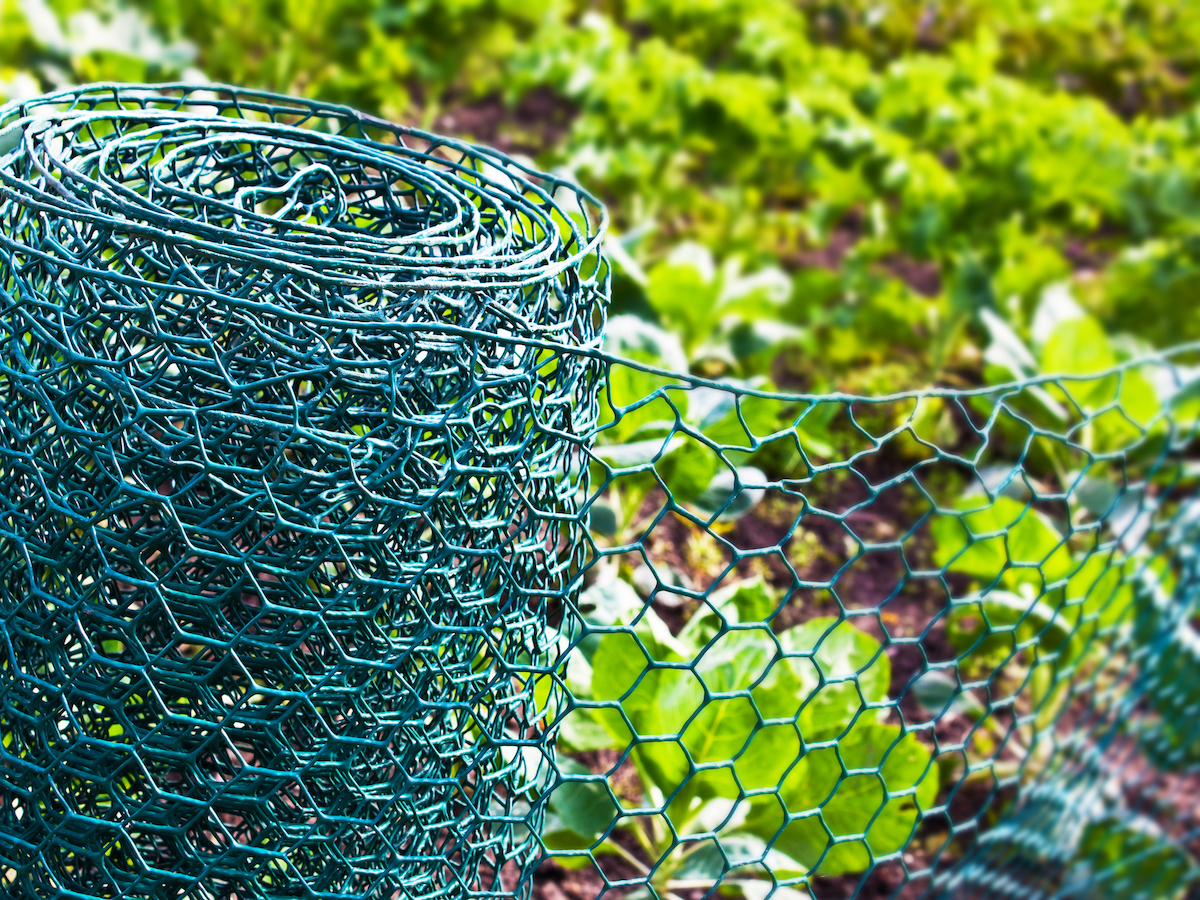
Adding a physical barrier between pests and your plants can also stop rodents from nibbling.
“One of the most effective methods for keeping rodents, like mice, rats, and squirrels, from eating your plants is to protect them by constructing a small fence around your plants or garden,” Pearson explains.
She adds that you should ensure it rises about three feet high and digs at least 12 to 18 inches into the ground, noting that this prevents pests that climb and burrow from accessing your plants.
RELATED: 6 Plants That Keep Deer Out of Your Yard, According to Experts.
5
Consider traps.
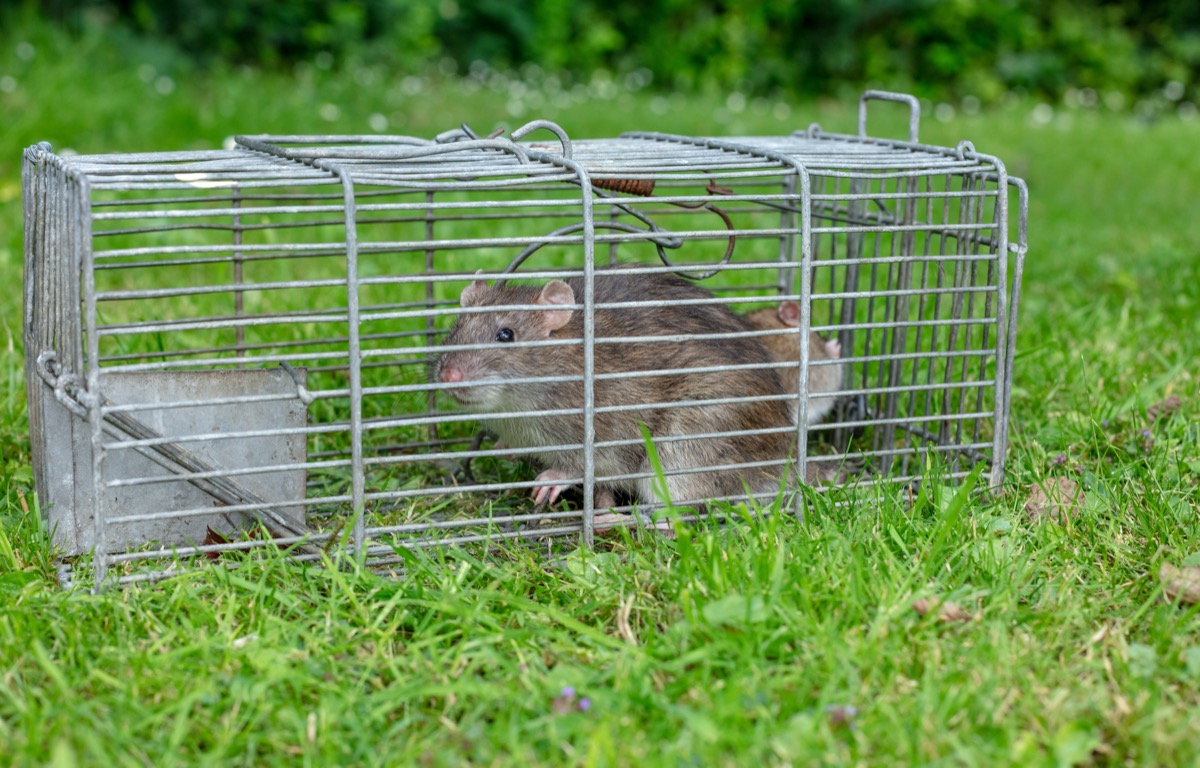
If your pest problem is out of control, Caballero suggests placing traps around your home or garden: “Placing traps along walls and known rodent paths can effectively reduce their numbers. Snap traps provide immediate results, while live traps are suitable for a catch-and-release approach. This method helps manage the population and indicates the extent of the infestation.”
6
Try natural repellents.

Natural rodent repellents can also stop pests from eating your plants.
“Applying natural repellents such as peppermint oil, cayenne pepper, or ammonia around your property can deter rodents,” says Caballero. “They are repelled by these strong scents, making treated areas less appealing. This approach is humane and non-toxic, offering a safe way to keep rodents away.”
RELATED: 5 Plants That Will Keep Mosquitoes Out of Your Yard, According to Pest Experts.
7
Maintain your lawn and trees.
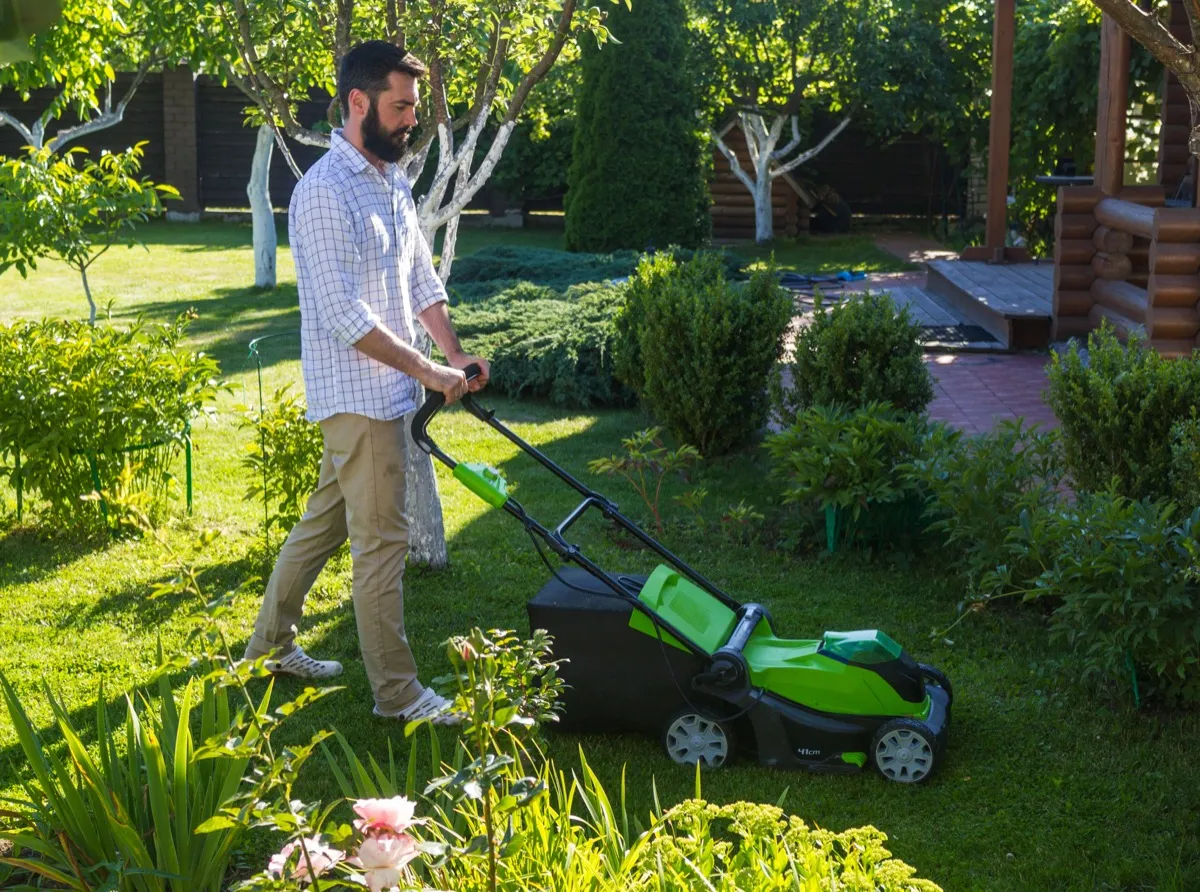
Pearson says that maintaining a well-groomed lawn all around your garden and home will also help keep rodents from eating your plants.
“Pests thrive in weedy, unkempt, overgrown grassy areas. Be sure to regularly mow your lawn, remove any bird feeders or outdoor pet food that may be attracting pests, and keep it free of sticks, wood, brush, junk, and other debris that pests take shelter in and around,” the pest expert says.
“You should also trim tree branches that hang over any areas you don’t want hungry squirrels to access by climbing up a nearby tree and dropping down into your garden,” she adds.
8
Hire a professional.
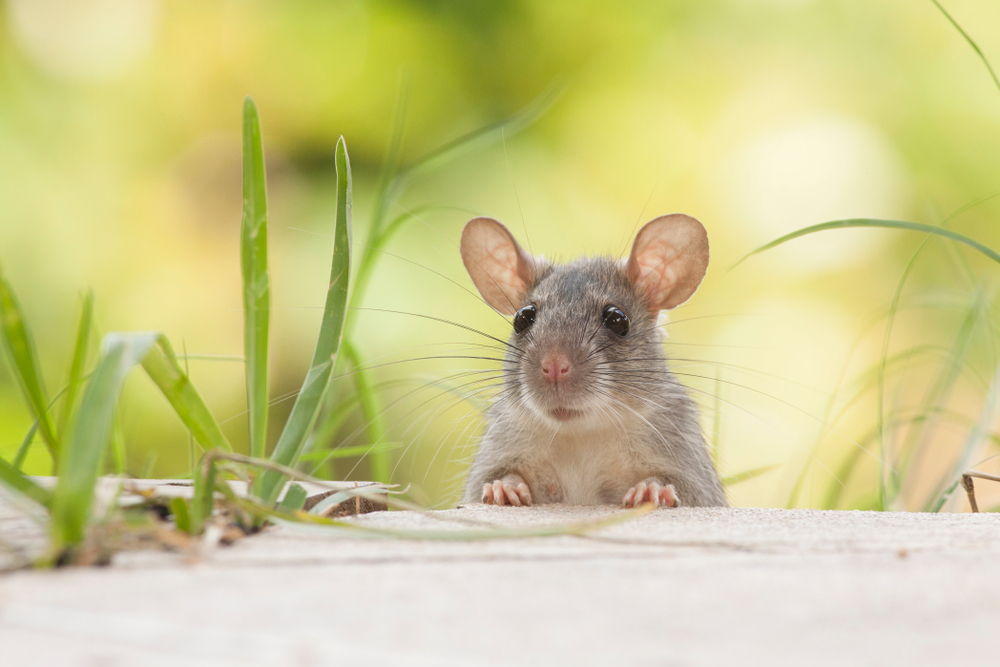
Finally, if all else fails, it may be time to hire a professional. “Homeowners may want to turn to a professional sooner rather than later, as mice breed very quickly,” says Pearson.
“What starts as just a handful of mice one day can very quickly become an overwhelming number in a short period of time, making the problem even worse and risking them then finding their way into your home for more food,” she warns.